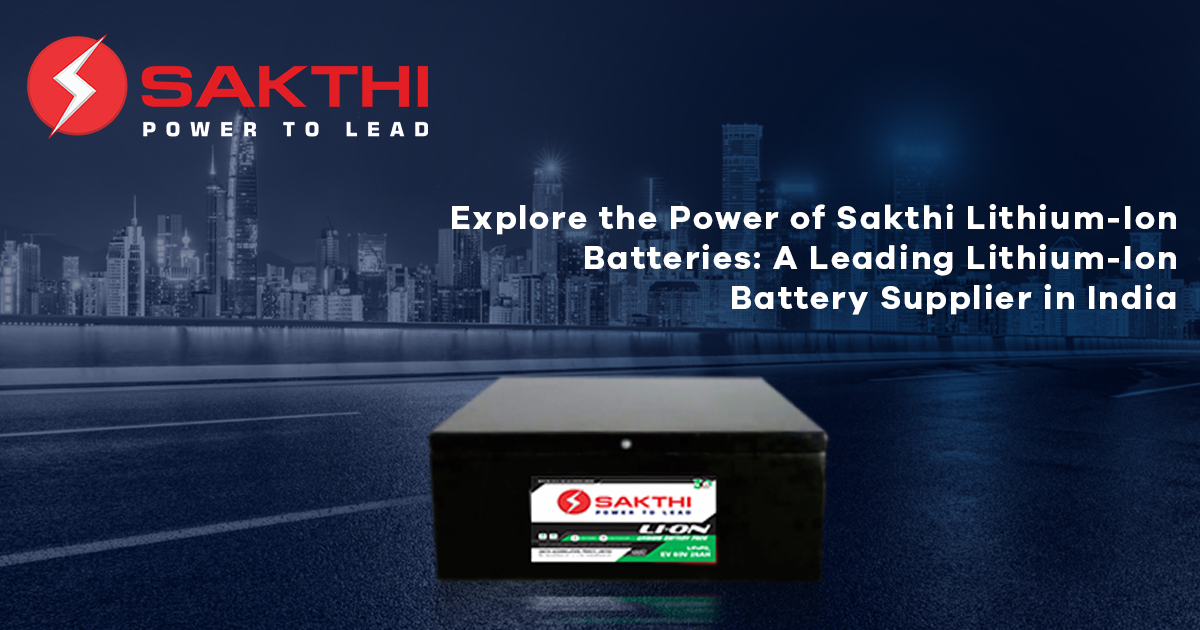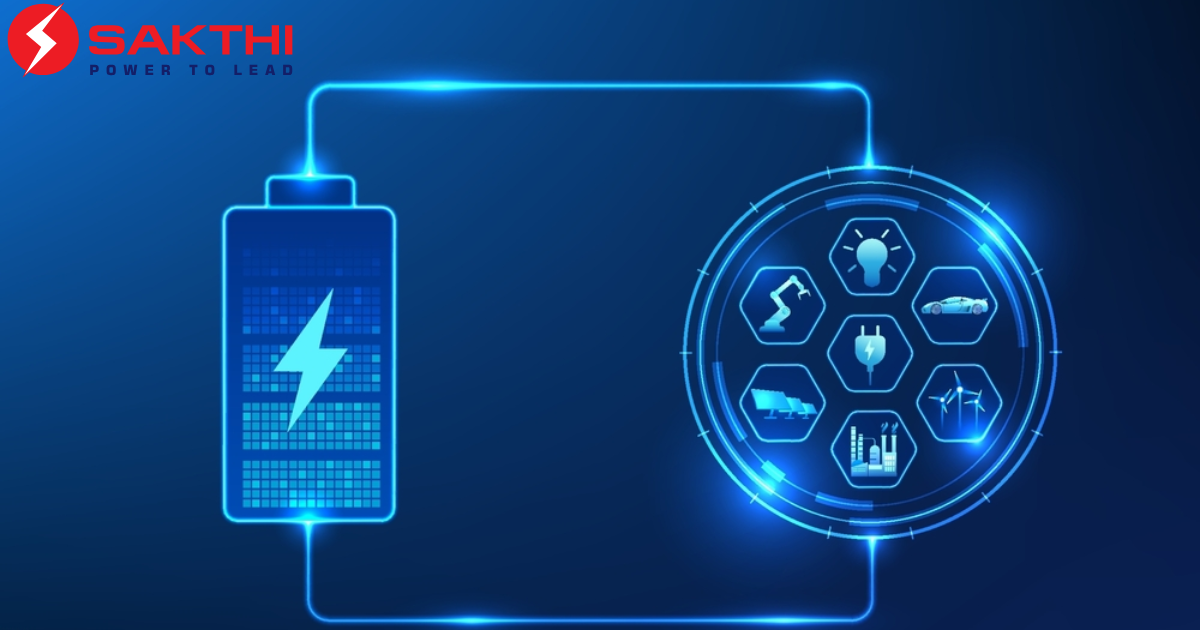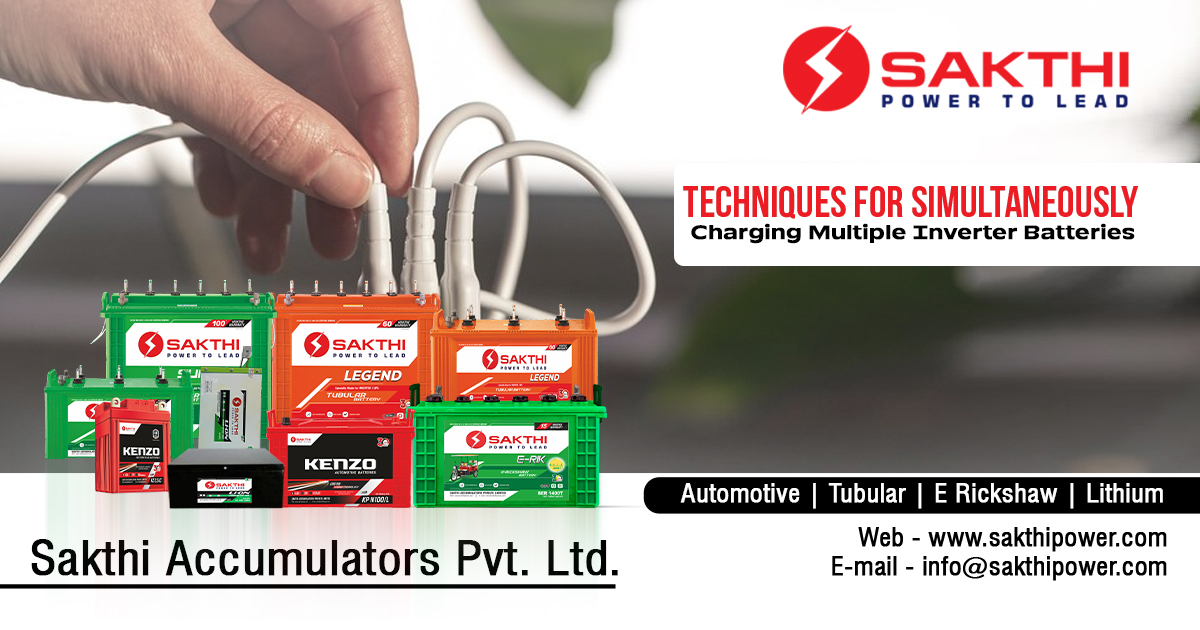As the world increasingly turns towards sustainable and reliable energy solutions, lithium-ion batteries have emerged as a top choice for various applications. Known for their long life, fast charging, and high energy density, these batteries are playing a vital role in numerous sectors. For those seeking superior performance and customized energy solutions, Sakthi Accumulators Pvt Ltd, a leading lithium ion battery supplier in India, offers a wide range of lithium-ion battery packs under the brand name SAKTHI LI-ON.
With a commitment to quality, innovation, and sustainability, Sakthi provides customized solutions that cater to diverse industries and energy demands. Whether it’s for electric vehicles, solar energy storage, or electronic devices, Sakthi’s lithium-ion batteries are designed to deliver reliability and performance.
Sakthi Accumulators Pvt Ltd: A Trusted Lithium-Ion Battery Supplier in India
Sakthi Accumulators Pvt Ltd is an ISO 9001:2015 and ISO 14001:2015 certified company specializing in high-performance lithium-ion batteries. These batteries are used across various applications, including electric vehicles (EVs), solar energy storage systems, and portable electronics. As one of the most trusted lithium ion battery suppliers in India, Sakthi offers a wide variety of battery types, including prismatic, pouch, and cylindrical cells, all built to cater to different energy requirements.
The available chemistries include LiFePO4 (Lithium Iron Phosphate) and NMC (Nickel Manganese Cobalt), providing solutions that are not only efficient but also long-lasting. Whether you need a battery for a solar energy system, electric bike, or energy storage solution, Sakthi ensures each product is customized for optimal performance.
Types of Batteries and Their Applications
Sakthi provides several types of lithium-ion batteries, each suited for different needs. These include:
- Prismatic, Pouch, and Cylindrical Cells: Available in models like 18650, 26650, 14500, 32700, 33140, and 34140, these batteries are designed to provide flexibility and efficiency across a range of applications.
- LiFePO4: Known for its stability, safety, and long lifecycle, this chemistry is ideal for those seeking robust, reliable energy storage.
- NMC (Nickel Manganese Cobalt): With higher energy density, NMC batteries are perfect for compact energy storage solutions requiring powerful output.
Sakthi’s ability to customize these batteries makes them ideal for applications such as electric bikes, electric cars, energy storage systems (ESS), and solar installations, ensuring each product meets specific customer needs.
Key Features of Sakthi Lithium-Ion Batteries
Sakthi’s lithium-ion batteries come equipped with several standout features that make them a superior choice in the market:
- Robust Battery Casing: The batteries feature IP65 and IP66 rated casings, ensuring protection against dust and water, making them suitable for harsh environments.
- Fast Charging Ability: These batteries charge quickly, without compromising their long-term durability, allowing users to minimize downtime.
- Advanced Battery Management System (BMS): With a sophisticated BMS, Sakthi batteries ensure maximum protection from overcharging, overheating, and short circuits, improving safety and extending battery life.
- Long Life Cycle & High Energy Density: Offering extended lifecycles and increased energy storage, Sakthi batteries provide long-term value and reliable power.
- Comprehensive Protection: Equipped with short circuit protection, temperature cut-off mechanisms, and cell charge/discharge protection, Sakthi batteries ensure superior safety and performance.
Superior Thermal Management for Reliable Performance
Sakthi emphasizes excellent thermal management to maintain the efficiency and safety of its lithium-ion batteries. By using innovative methods such as compression pads, battery encapsulation, and phase-changing materials, Sakthi ensures that its batteries perform consistently even under demanding conditions.
Solar Lithium-Ion Battery Packs
For solar applications, Sakthi provides custom lithium-ion battery packs designed to meet specific voltage, size, and capacity requirements. These packs are ideal for solar lights, home energy storage systems, and large solar installations, making them a preferred choice for renewable energy solutions.
Why Choose Sakthi as Your Lithium-Ion Battery Supplier in India?
With a focus on quality, customer satisfaction, and innovation, Sakthi Accumulators Pvt Ltd has earned its reputation as a leading lithium ion battery supplier in India. The company’s commitment to providing customized solutions tailored to diverse applications, combined with its adherence to international quality standards, makes Sakthi the preferred choice for businesses and consumers seeking reliable energy storage solutions.
Conclusion
Sakthi’s lithium-ion batteries are the perfect solution for those looking for durable, eco-friendly, and efficient energy storage options. Whether you need energy storage for electric vehicles, solar systems, or industrial tools, Sakthi provides tailored lithium-ion battery packs that meet every energy need. As one of the top lithium ion battery suppliers in India, Sakthi Accumulators Pvt Ltd stands out for its commitment to quality, innovation, and customer satisfaction. Choose Sakthi for a reliable, sustainable, and high-performance energy solution.







